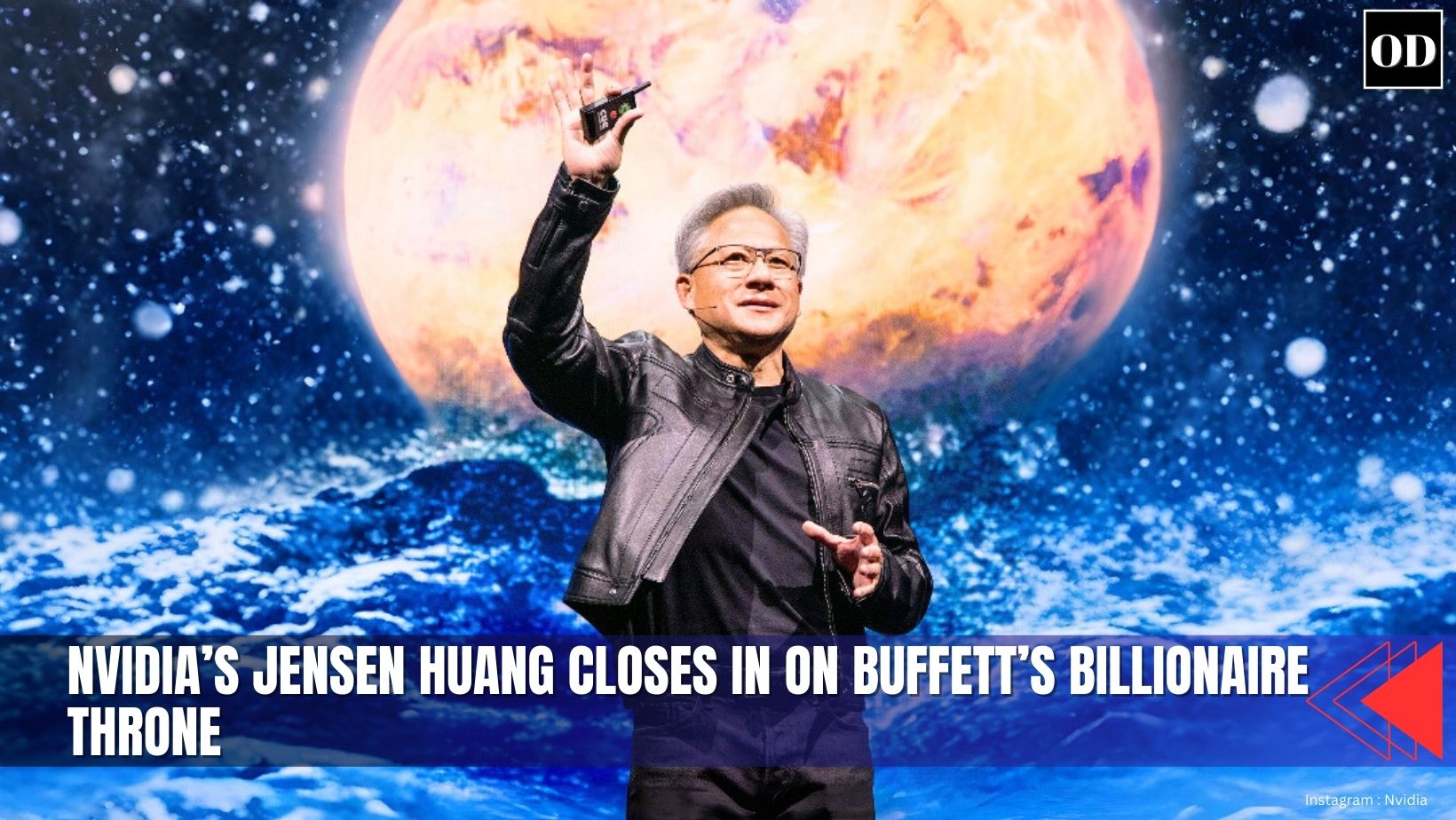
Silicon Surge: Nvidia’s Jensen Huang Closes In on Buffett’s Billionaire Throne
Jensen Huang’s meteoric rise in wealth mirrors Nvidia’s dominance in the AI revolution, as he edges toward Warren Buffett’s legendary status.
Jensen Huang, co-founder and CEO of Nvidia, is now within striking distance of Warren Buffett on the global wealth leaderboard — and may soon surpass him.
At 63, Huang’s net worth has soared to $142 billion, with a staggering $27.6 billion gain since the start of 2025, according to Bloomberg. His fortune is largely tied to his 3.5% stake in Nvidia, which recently became the world’s most valuable public company.
On Wednesday, Nvidia’s market cap briefly crossed the $4 trillion mark — a historic milestone. Its stock has climbed 22% year-to-date, fueled by the company’s pivotal role in powering artificial intelligence systems across the tech industry.
Loop Capital analyst Ananda Baruah believes Nvidia’s valuation could climb even higher — potentially peaking near $6 trillion, according to Forbes.
Meanwhile, Buffett’s net worth stands at $144 billion, up $2.19 billion this year. His firm, Berkshire Hathaway, has seen a 5% stock increase in 2025. Yet, Nvidia’s explosive growth could soon push Huang ahead of the Oracle of Omaha.
Buffett, now 94, continues his philanthropic legacy. In June, he donated $6 billion to five charities, bringing his lifetime giving to over $60 billion — more than his entire net worth back in 2006, when he ranked second globally behind Bill Gates.
Still, Huang’s ascent isn’t without volatility. Nvidia’s stock plunged 17% on January 27, after reports that Chinese AI firm DeepSeek used downgraded Nvidia chips, triggering investor panic. It marked the largest single-day drop in U.S. corporate history, erasing nearly $600 billion in market value.
Another dip came on March 3, when President Donald Trump announced tariffs on Mexico, where Nvidia manufactures some of its products. The stock fell 9%, but has rebounded strongly since June.
Huang founded Nvidia in 1993 with engineers Chris Malachowsky and Curtis Priem — none of whom had prior experience running a company. On the Acquired podcast, Huang reflected on the journey:
“If we realized the pain and suffering… I don’t think anybody would start a company.”
“That’s the superpower of an entrepreneur — they don’t know how hard it is. They just ask, ‘How hard can it be?’”



Average Rating